What Makes a Great NDIS Support Coordinator?
A Support Coordinator plays a crucial role in helping NDIS participants navigate the complexities of their NDIS plan and assist participants in effectively implementing their plans. But what separates a good Support Coordinator from a great one? Successful Support Coordinators possess a unique blend of skills, knowledge, and personal qualities that enable them to empower participants and create positive outcomes. This article will explore the unique qualities of a great support coordinator and how they contribute to helping participants achieve their NDIS goals.
.png)
1. Strong Knowledge of the NDIS System and Support Coordination
A great Support Coordinator has a deep understanding of the NDIS, including:
- How funding works and what can be claimed under different support categories. The capacity building budget plays a crucial role in funding support coordination services, allowing participants to access necessary support to achieve their goals.
- NDIS rules, guidelines, and policy updates.
- The roles of various service providers and how they fit into a participant’s plan.
- The levels of support coordination to effectively implement NDIS plans and achieve personal goals
This expertise helps them guide participants in making informed decisions and ensuring they maximise their plan benefits.
2. Exceptional Communication and Active Listening
Support Coordinators work closely with participants, families, and service providers. Strong communication skills are essential to:
- Explain complex NDIS processes in a clear and simple way.
- Actively listen to participants’ goals, needs, and concerns.
- Advocate effectively on behalf of participants.
The best Support Coordinators ensure participants feel heard, respected, and understood in every interaction.
3. Person-Centred Approach
Every NDIS participant has unique needs and goals. A great Support Coordinator:
- Tailors their approach to align with each participant’s aspirations and lifestyle. The level of support provided is tailored to each participant's specific needs and circumstances.
- Encourages independence and self-determination.
- Helps participants develop confidence in managing their own supports.
Rather than making decisions for the participant, they empower them to make choices that align with their personal goals.
4. Strong Problem-Solving and Advocacy Skills
NDIS participants often encounter challenges when accessing supports. A skilled Support Coordinator must be able to:
- Identify barriers and challenges.
- Advocate for participants when dealing with service providers or the NDIS.
- Develop creative solutions when things don’t go as planned.
The best Support Coordinators are tenacious, resourceful, and proactive in overcoming obstacles.
5. Strong Organisational and Time Management Skills
With multiple participants to support, a great Support Coordinator must be highly organised and efficient. They need to:
- Keep track of multiple NDIS plans, budgets, and deadlines.
- Follow up on service agreements, referrals, and bookings.
- Ensure documentation and reporting requirements are met.
A lack of organisation can lead to missed opportunities for participants, so strong time management is key.
6. Understanding of Local Supports and Services
A great Support Coordinator knows what local services are available and how to connect participants with the right supports. This includes:
- Disability service providers.
- Community programs.
- Employment, education, and social inclusion opportunities.
By building strong networks and relationships, Support Coordinators can offer participants more options and better solutions.
7. Compassion, Patience, and Empathy
Navigating the NDIS can be overwhelming for many participants. A great Support Coordinator:
- Shows empathy and genuinely cares about their participant’s well-being.
- Is patient and understanding, especially when challenges arise.
- Remains calm and supportive, even in high-stress situations.
These qualities help build trusting and positive relationships with participants and their families.
8. Commitment to Continuous Learning and Improvement
The NDIS is constantly evolving, and the best Support Coordinators stay up to date with changes in policy, funding, and best practices. They:
- Attend training and professional development.
- Stay informed about NDIS updates and industry trends.
- Continuously seek ways to improve their services and support participants better.
This commitment ensures they provide the most effective and relevant support possible.
The Impact of a Great Support Coordinator
A great NDIS Support Coordinator does more than just help participants navigate their plan—they empower, advocate, and support them in achieving their goals. A strong support network is crucial in helping individuals navigate their NDIS plans and achieve their goals, as it allows clients to access appropriate services tailored to their specific needs, making the process less overwhelming and more manageable. By combining NDIS expertise, communication skills, problem-solving abilities, and a person-centered approach, they play a vital role in enhancing the quality of life for people with disabilities.
For NDIS providers, investing in well-trained, compassionate, and dedicated Support Coordinators is key to delivering high-quality services and making a meaningful difference in participants’ lives.
Checklist for a Great NDIS Support Coordinator
As a participant, selecting the right Support Coordinator can make a big difference in how effectively you navigate your NDIS plan and achieve your goals. Or, as a NDIS Support Coordinator understanding the qualities of a great Support Coordinator can help you to contribute to successful outcomes for your participants.
Use this checklist to ensure you choose a knowledgeable, supportive, and reliable coordinator who will work in your best interest.
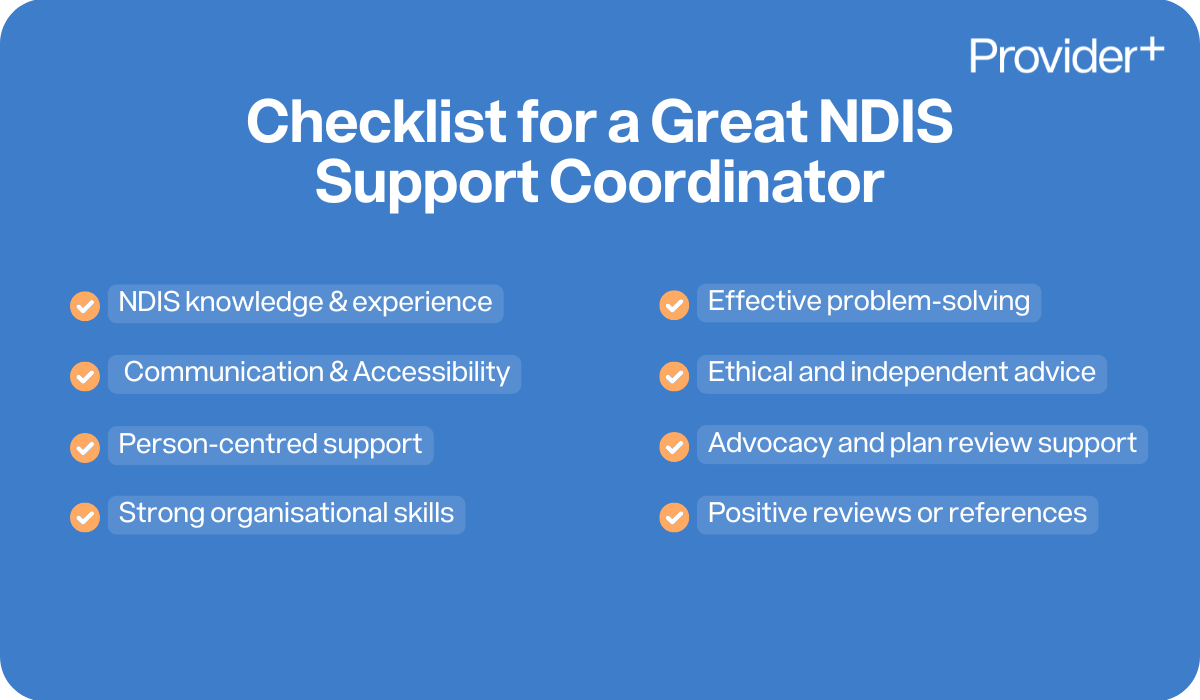
1. Experience & Knowledge
- Understands the NDIS and how to maximise your plan benefits
- Has experience working with people with similar support needs
- Stays up to date with NDIS policy changes and best practices
2. Communication & Accessibility
- Explains things clearly and in a way you understand
- Is easy to contact and responds in a timely manner
- Listens to your needs, preferences, and goals
3. Person-Centred Approach
- Supports you to make your own choices and decisions
- Respects your cultural background, identity, and personal circumstances
- Works with you to build your confidence and independence
4. Organisational & Problem-Solving Skills
- Helps you coordinate and manage multiple supports effectively
- Can solve problems and troubleshoot issues with service providers
- Keeps track of your funding and ensures services align with your plan
5. Independence & Ethics
- Provides unbiased recommendations without conflicts of interest
- Acts in your best interests rather than prioritising specific providers
- Follows the NDIS Code of Conduct and upholds ethical standards
6. Advocacy & Support
- Helps you advocate for your rights and access the supports you need
- Supports you in preparing for plan reviews and reassessments
- Ensures your voice is heard in all decisions
7. Reviews & Recommendations
- Has positive reviews or recommendations from other participants
- Can provide references or testimonials from past clients
Specialist Support Coordination and Mandatory Registration
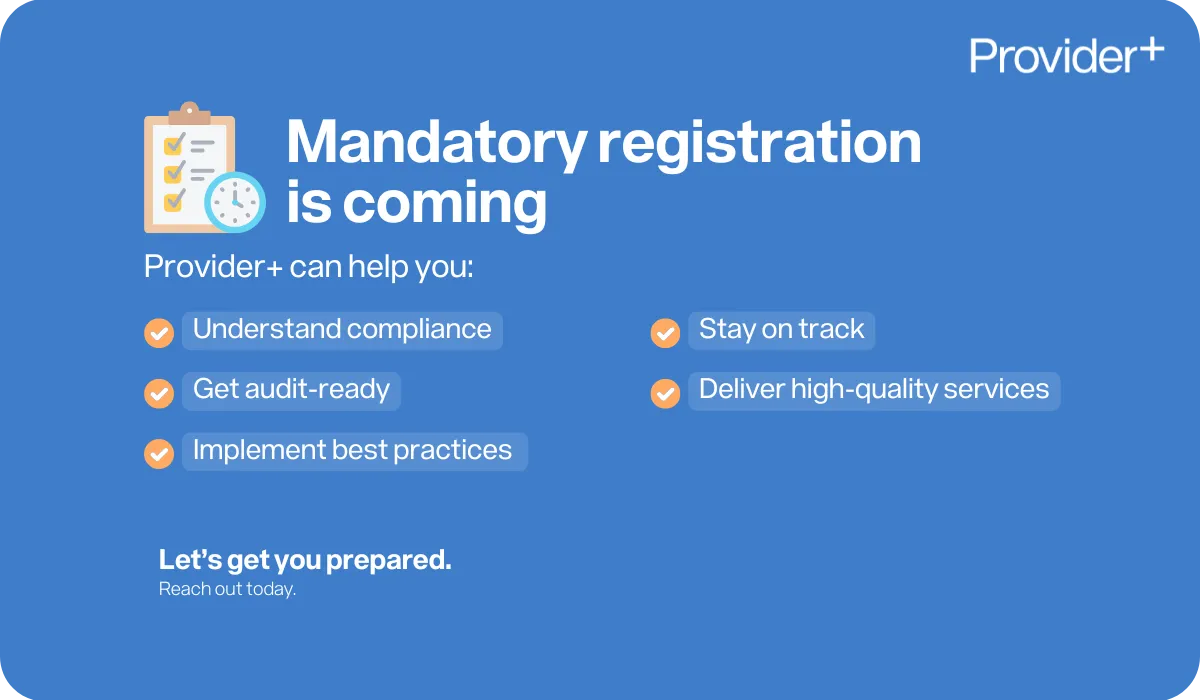
As mandatory registration approaches, Provider+ is here to support you every step of the way. From understanding compliance requirements to preparing for audits and implementing best practices, our team can provide the guidance and resources you need to navigate the transition smoothly. By staying informed and proactive, you can ensure your organisation is fully prepared whilst continuing to deliver high-quality services to participants. Reach out to us today to learn how we can assist you in the lead-up to mandatory registration.
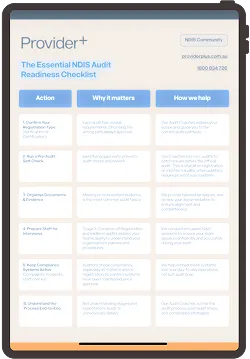
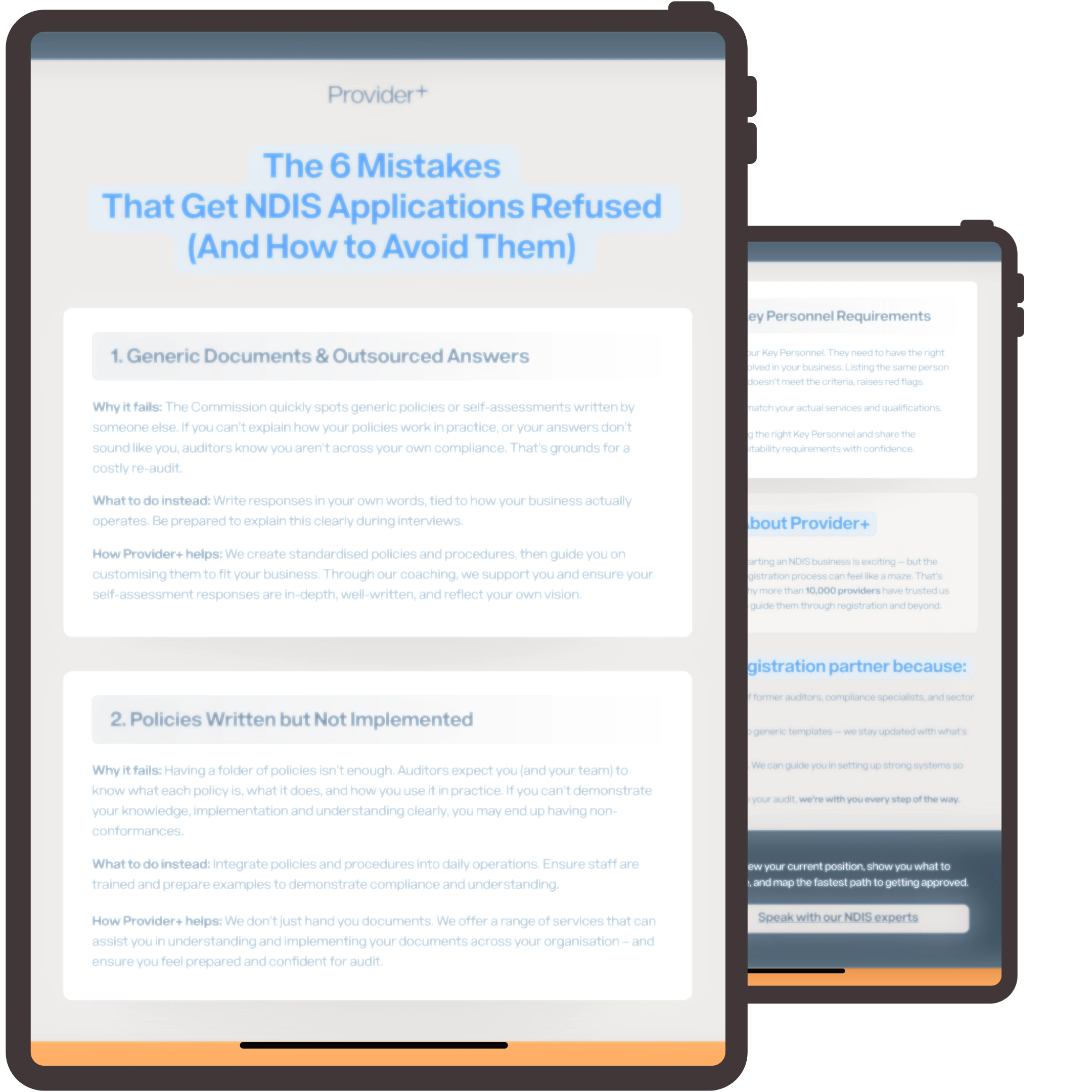
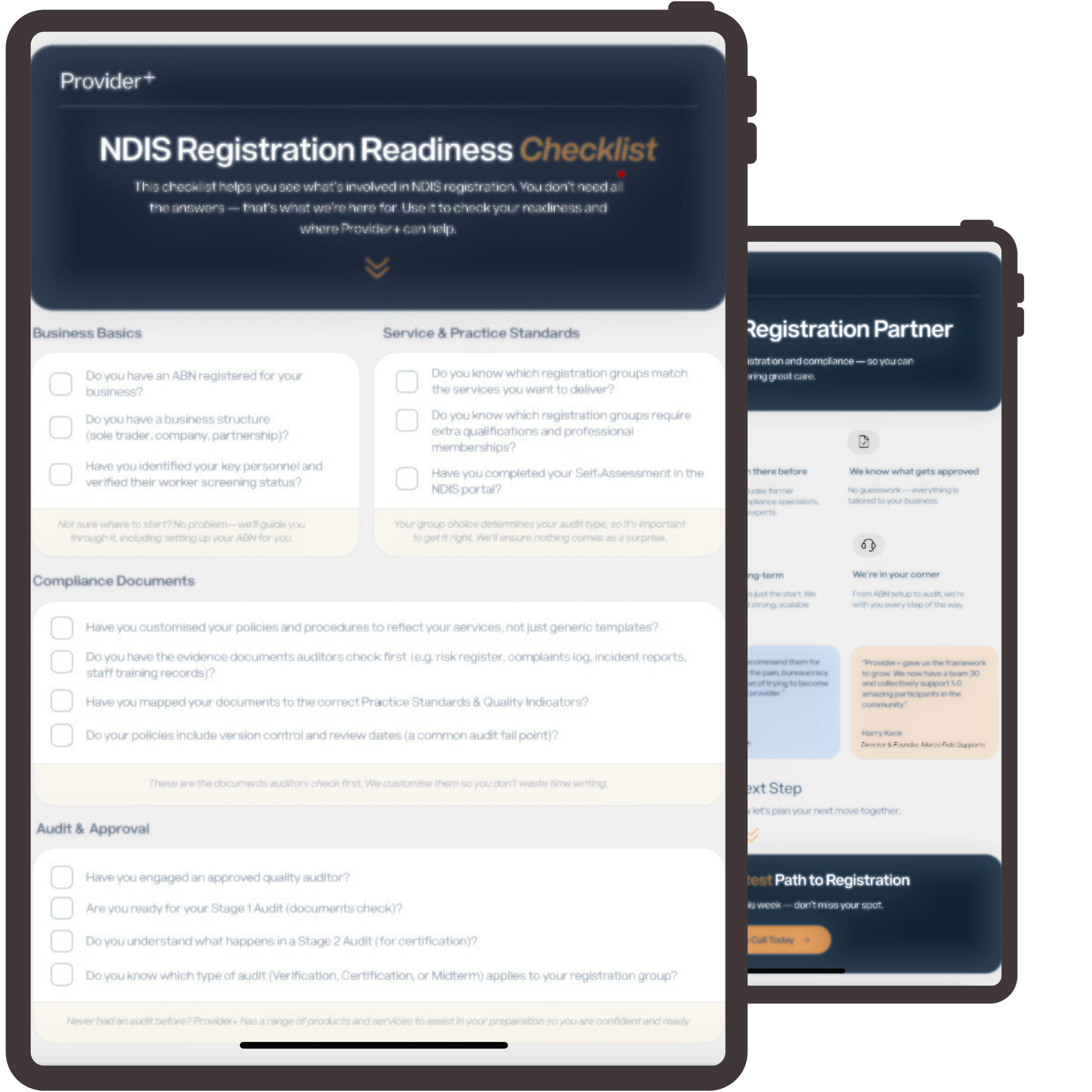

































FAQs
Here is our frequently asked questions.


